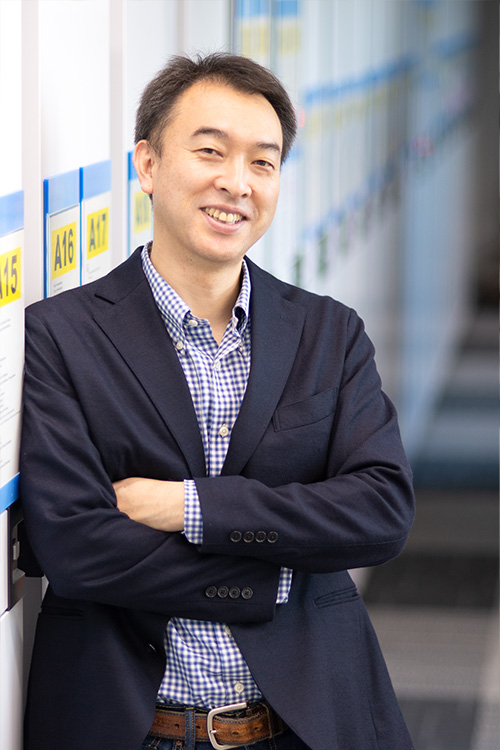
- HOME
- Neural Prosthetics Project
Neural Prosthetics Project
Neural Prosthetics Project
Dr. Yukio Nishimura has led the Neural Prosthetics Project since 2017. He received a PhD from Chiba University Medical School in 2003. He was a postdoctoral fellow at the National Institute for Physiological Science in Japan from 2003 and at the University of Washington in the US from 2007. He started working at the National Institute for Physiological Science in 2011, and then joined the faculty of Kyoto University as an Associate Professor in 2016. His overall research is in neural control of limb movements in humans and non-human primates. His current research focuses on neural mechanisms of functional recovery after neural damage and restoration of lost functions using brain computer interfaces.
Backgrounds
We are committed to developing innovative strategies for neuro-rehabilitation to restore lost function following nervous system damage and translating these breakthroughs into clinical applications that significantly improve the quality of life for individuals with neural impairments.
At the forefront of our work is the Artificial Neuronal Connection (ANC), a cutting-edge neural interface designed to bridge spinal lesions by connecting supraspinal systems to spinal networks distal to the lesion. This approach effectively restores lost motor function. Through ongoing clinical trials, we are rigorously assessing the efficacy of ANCs in enhancing motor recovery in paralyzed patients while investigating the neural adaptations underpinning the recovery process.
Depression often hinders, while motivation enhances, functional recovery after neuronal damage. Although increased motivation is known to boost motor performance, the neural substrates driving this psychological effect remain elusive. Our research seeks to identify these substrates by uncovering the functional role of the mesocortical pathway in motor control.

Objectives
- Restoring of sensory-motor function using a neural interface
- Underlying psychological effects on functional recovery after neural damages
Members
Project Leader Yukio Nishimura
- Toshiki Tazoe
- Sho Sugawara
- Osamu Yokoyama
- Michiaki Suzuki
- Noboru Usuda
- Kei Obara
- Masafumi Nejime
- Hironori Tsuji
